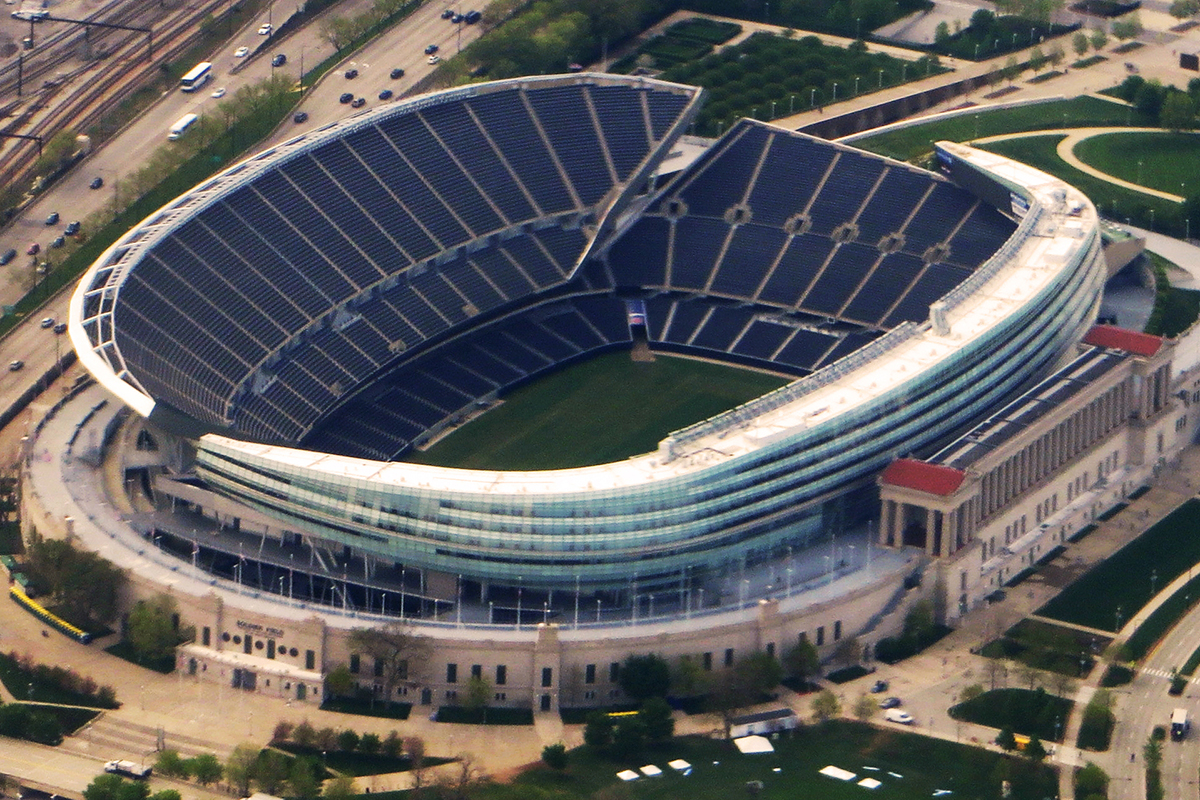Monsters of the Midway Act sparks discussion of the role of public dollars financing sports franchises
 CHICAGO – Nearly 20 years ago, the Bears were warned that their Soldier Field renovation plans were too small, too limited in use and downright ugly. The Bears dismissed those concerns and moved full speed ahead in their demand for more than a half billion dollars in public funding to redo the stadium according to their vision.
CHICAGO – Nearly 20 years ago, the Bears were warned that their Soldier Field renovation plans were too small, too limited in use and downright ugly. The Bears dismissed those concerns and moved full speed ahead in their demand for more than a half billion dollars in public funding to redo the stadium according to their vision.
Now, they’re preparing to walk away from it and potentially move to suburban Arlington Heights. All the reasons for their move are the concerns brought up and rejected by the Bears 20 years ago.
“We need to have a serious discussion about the role of public dollars used to finance stadiums for multibillion dollar private professional sports enterprises,” said State Senator Robert Peters (D-Chicago), a lifelong Bears fan who represents the near South Side district that includes the football stadium and surrounding neighborhoods.
Soldier Field is owned by the Chicago Park District and has been the home stadium of the Chicago Bears since the team’s move from Wrigley Field in 1971. The field was remodeled in 2002 at the cost of $660 million, making the Bears the recipient of the then-largest single government contribution to a professional sports team in U.S. history. Last month’s Forbes valuation of the Chicago Bears franchise was just over $4 billion, making the team the seventh most valuable NFL franchise.
“The Bears listed a litany of reasons why they believe the relocation is appropriate, but interestingly enough, many of these problems existed in 2001, and the Bears either ignored or dismissed them,” Peters said. “The people of Chicago deserve answers as to why the issues that are so pressing now were not as pressing 20 years ago when the Bears were looking for hundreds of millions of dollars in taxpayer money.”
Peters is introducing legislation which would prohibit the Bears from moving their home stadium unless:
- The team owners and the local government reach an agreement allowing the team to relocate; or
- The team owners give no less than six months’ notice of their intention to relocate, and, within that six month period, gives:
- The local government the opportunity to purchase a greater than 50% share of team ownership;
- The local government the right of first refusal to purchase the team; or
- An individual or group of individuals who live in area around the facility the opportunity to purchase the team.
“Bears games are an extremely important part of the local economy, and Chicago residents have put billions of dollars into the pockets of the team owners over the past fifty years,” Peters said. “If the owners want to move the team, that’s fine, but they owe a debt to the city and its taxpayers, who have been paying for their stadium.”
The legislation, which would also apply to any other team that is based in a publicly owned or supported stadium, was filed Thursday. It will be officially introduced during a perfunctory session and will then await assignment to a committee.




